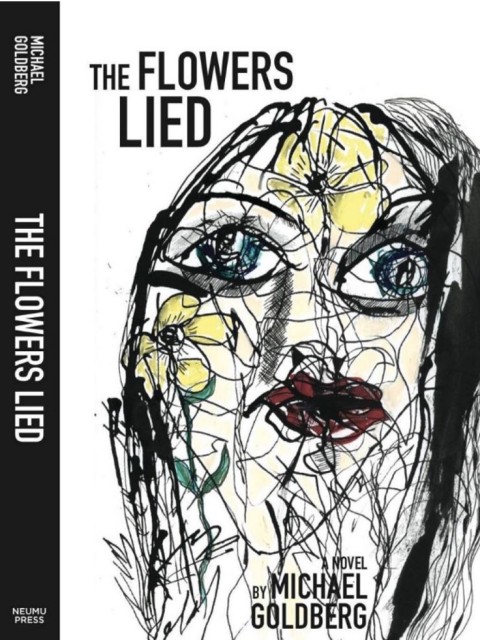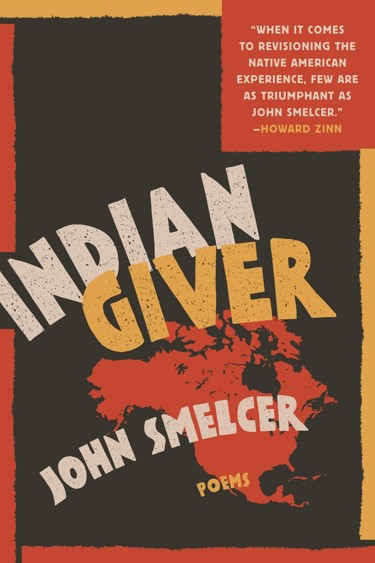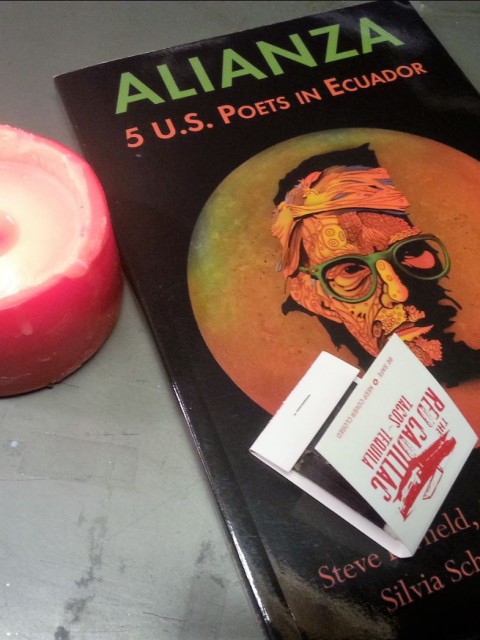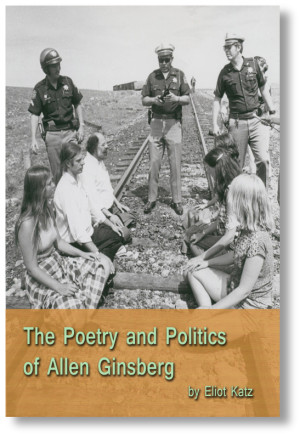F– USE
by Bina Sarkar Ellias
ISBN #978-93-82749-22-6)
(© 2015: Hardbound: $16.00)
Poetry Primero, an imprint of Paperwall Media & Publishing Pvt Ltd
(Mumbai, India)
When Words Tear the Curtains to Unleash Trapped Reality
By Blaire R. Ferry
F– USE by Bina Sarkar Ellias is an incredible collection of poetry that focuses on a variety of subjects with a specific focus on the condition of the human race.
 The book opens with an introduction. While people often overlook introductions, this particular intro is not one to be skipped. Written by Alan Britt, an American Poet and Professor at Towson University, the introduction provides the reader with a glimpse inside the poet’s head. Britt explains, in the introduction, that Ellias’ work is meant to reach out and direct humanity towards helping one another. He reflects that her poetry touches not only on difficult issues but also on the way to fix the problems, all for the cause of bettering our world as a whole. Britt points out the common themes in Ellias’ poetry, such as the struggles of war and the ugliness the world faces on a constant basis. He speaks of the passion Ellias puts into her poems. Her love for friends and family, her strength in her faith, and her determination towards bettering the world all play a key element in her beautiful poetry. Likewise, Britt’s introduction focuses on Ellias’ precise diction. Britt explains that Ellias uses “language as the primary vehicle for clarifying perception” and he insists above all that her poems “assert that hope exists.”
The book opens with an introduction. While people often overlook introductions, this particular intro is not one to be skipped. Written by Alan Britt, an American Poet and Professor at Towson University, the introduction provides the reader with a glimpse inside the poet’s head. Britt explains, in the introduction, that Ellias’ work is meant to reach out and direct humanity towards helping one another. He reflects that her poetry touches not only on difficult issues but also on the way to fix the problems, all for the cause of bettering our world as a whole. Britt points out the common themes in Ellias’ poetry, such as the struggles of war and the ugliness the world faces on a constant basis. He speaks of the passion Ellias puts into her poems. Her love for friends and family, her strength in her faith, and her determination towards bettering the world all play a key element in her beautiful poetry. Likewise, Britt’s introduction focuses on Ellias’ precise diction. Britt explains that Ellias uses “language as the primary vehicle for clarifying perception” and he insists above all that her poems “assert that hope exists.”
After Britt’s intro, the book progresses to short reviews on the poems followed by a small forward written by the author herself. The reviews, which speak highly of the poems, indicate that Ellias “experiences a moment, visualizes that thought, and then expresses it in words.” The reviews also speak to her mannerisms of writing and glorify her work by claiming that the poems are “poems of light that uplift that soul.”
After such praise, Ellias adds a quip of humble humor, addressing her work as “These scribbles.” She speaks on her first experiences of writing verse, her poetic experience starting in grade school, and continues with grateful thanks to friends, family, colleagues, publishers and others who helped her along the way. Her final thought is a touching thanks to her spouse of forty-two years before the book begins with the first poem, “Scavenger.”
One moves into the poems at this point and is quickly drawn headfirst into them, which is the best way to appreciate their power. The gravity of the work is not crushing, nor are Ellias’ poems so complex that one must read them six times over; however, the work is mind expanding. One listens to the work beyond a silent reading of the poems because Ellias’ writing invokes the senses allowing readers to experience significant moments. Her word choice like “throbbed/ to the pulse // of remedies / and potions // that cure / the body // but not / the soul” allow the reader to hear the throbs and hear the clinks of moments she describes. Sometimes the brevity of these poems makes one wonder how Ellias could possibly write such descriptive and thought-provoking work with so few words. Her use of description is immaculate from poem to poem, and her topics of interest circle the globe while moving across the pages.
Ellias offers the reader a presence of harmony and peace with her style. There is no aggression in her tone or her speak. The beauty of her poetry is recognized by the introductory reviews. Passages such as “fall with it- / fall with time; / living each moment / with pure imperfection // and in truth to yourself” cause readers to feel the invitations she offers in her work. Ellias personifies abstract ideas, such as night and day, through simplistic yet wonderful imagery: “i ripped open / the night // to reveal / it’s dark secrets // and found / day slouching / in a corner.”
All in all, the poems in F– USE are written with a precision and passion that readers are easily able to access. Bina Sarkar Ellias inspires a mindset that embraces the world to change by looking at reality in a new light. Her imagery is simple yet holds a complex nature that flows softly through her poems. Her work follows no rigid pattern, but that is the most beautiful part about this collection of poems. The read is worth every moment. Simply put, F– USE is a skillfully crafted and delightful book that rewards its readers with poignant intelligence through language that is imaginative and profoundly engaging.
About the reviewer:
Blaire R. Ferry is pursuing her English degree on the writing track at Towson University. Writing since age five, she finds no greater joy in life than creating worlds through words. Originally from Maryland, she currently lives in New Mexico.
The Flowers Lied
Second in the Freak Scene Dream Trilogy
By Michael Goldberg
Neumu Press, © 2015
ISBN 9780990398349
Cover: Leslie Goldberg
Paperback: $19.95
Review by M. Sedlof
C0ntributing Writer
It’s not easy to go through life driven by an intense desire to be part of a scene that really doesn’t think it needs you. Such is the quandary of Michael Stein in The Flowers Lied, Part Two of the  Freak Scene Trilogy by Michael Goldberg that began with True Love Scars. After suffering ritualistic tribulations of young love in Scars, Stein (aka, Writerman), returns to the college scene older, wiser, increasingly hell-bent on becoming the rock ‘n’ roll writer of his dreams.
Freak Scene Trilogy by Michael Goldberg that began with True Love Scars. After suffering ritualistic tribulations of young love in Scars, Stein (aka, Writerman), returns to the college scene older, wiser, increasingly hell-bent on becoming the rock ‘n’ roll writer of his dreams.
Stein’s further maturation comes at a cost. Still throttled by hormonal urges, he continues to suffer in lustful but patient pursuit of a lesbian love interest that never really gets off the ground. The relationship flourishes as long as it remains platonic, but wilts when push comes to shove. Meanwhile, his best friend Jim falls for a woman who eventually takes Stein in a one-night-stand as much to see if she can, as to drive a wedge between him and Jim that sets them apart forever.
Goldberg continues to draw on his knowledge of music and musicians, dropping in names, places and lines that help define moments in time and illustrate the ‘70s experience. Revel in the ingenuity of a more than chance meeting with Neil Young that is a mark of Stein’s aggressive pursuit of his career goal. Grow with him as he discards the false gods of rock criticism who dismiss him as a wannabe, yet fail to acknowledge (at their own expense) his insistence on the imminent importance of The New York Dolls.
Stein knows he’s been a schmuck, but in this progression, it should certainly make him a better person in the end. Thus it is that discordant youth with its forked tongue and divided loyalties between family, self and others manages to take another step out from under the umbrella of naivete, into the real world and the bright sunlight of self-knowledge.
So looking forward to Part Three.
About the reviewer:
M. Sedlof teaches palmistry from a small studio on East 8th Street in New York City. You won’t find him on facebook.
INDIAN GIVER
Poems
John Smelcer
Leapfrog Press (Fredonia, NY)
ISBN: 978-1-935248-80-4
February 2016
130 pages
$14
Review by Lyn Lifshin
Sorrow, terror, heartbreak, bitterness, anger, dreams and failed dreams, sarcasm and irony braid with a rare dash of humor. This a beautiful, unique book, a lament of beauty and horror, of loss for the wounded indigenous life. Sadness pervades these strong, heart-piercing poems. Dreams blend with nightmares often set in nature where what happens is not always kind but almost never without beauty. In “Durable Breath” “Raven’s muffled caw rise from the river.” The sadness over the loss of Indian language pervades the poems. “My father, born at Indian River, does not know his mother’s language.” But in the darkness, Raven’s wings lift “ancient syllables like an ochre tide.”
In “Returning the Gift,” a raven the speaker has fed for weeks, cutting salmon to dry on racks in the sun, returns months later to rescue the man who is lost moose hunting under a fingernail moon listening to tight-stringer wind from inside (his) flutter tent until morning when the world is wintered and the raven “quietly, through the stark white of the North “leads him from the forest home.” So often the loneliness is cut by some beauty, some animal, some spirit from “far ochre mountains,” singing and singing to his pain and sadness.
I admire Smelcer’s way of combining beauty, anger, sadness and nature in “So Begins the Lasting Silence.”
SO BEGINS THE LASTING SILENCE
There is no doubt
I will be the last speaker
of our dying language
I will know
that day has come
when I call out
across the frozen river
to the far white mountain
in my Native tongue
and wait forever
for an echo
that will not return —
the far white mountain having forgotten its Indian name
Horror and pain are never far from the Indian landscape. In “Reservation Roulette,” “Ceremony,” “Tax Evasion,” and “Deer on the Snowy Field” where men toss infants in the air for shooting practice as the future crumbles, we see a land where terror lurks.
Extreme sadness is never far from the speaker’s thoughts. In “Dandelions in Full Bloom,” a poem ending in beauty, it is a beauty following an unfair execution. Anger glows red hot in “Things You Didn’t Know About American History # 138” and in “How to Make Blue Ribbon Fry Bread.”
“My Frostbitten Heart,” a poem about the day frostbite captured him, there is that familiar sadness and beauty. “Sometimes I feel it in my chest, my frozen heart, fragile as a snowflake…ready to shatter at any minute like thin ice on a pond.”
So many lines and images stay with me – often because of the merging in one poem of pain, love, beauty and fear. In one of the most visually beautiful poems “Indian boys love to beat Indian drums while Indian girls sway in moving circles. The hearts of Indian boys are tight stretched drums. The hearts of Indian girls are beautiful sad songs.”
And I love the haunting lines from “The Last Fancy Dancer,” again a lament for the loss of his culture, the traditions, the language:
No more drums.
No more dancers.
He stood outside and cried
beneath the stars, the stars,
flowers of his country.”
A striking, beautiful book
Lyn Lifshin
December 11, 2015
About the reviewer:
Lyn Lifshin has published over 130 books and chapbooks including 3 from Black Sparrow Press: Cold Comfort, Before It’s Light and Another Woman Who Looks Like Me. Before Secretariat: The Red Freak, The Miracle, Lifshin published her prize winning book about the short-lived beautiful race horse Ruffian, The Licorice Daughter: My Year With Ruffian and Barbaro: Beyond Brokenness. An update to her Gale Research Autobiography is out: Lips, Blues, Blue Lace: On The Outside. Also just out is a dvd of the documentary film about her: Lyn Lifshin: Not Made Of Glass. Just out: Femme Eterna and Moving Through Stained Glass: the Maple Poems. Forthcoming: Degas Little Dancer and Winter Poems from Kind of a Hurricane press, Paintings and Poems, from Tangerine press and The Silk Road from Night Ballet, alivelikealoadedgun from Transcendent Zero Press. Her poetry has appeared in several issues of Ragazine.CC.
For more information: www.lynlifshin.com
ALIANZA:
5 U.S. Poets in Ecuador
Steve Barfield, Alan Britt, Alex Lima, Silvia Scheibli and Lilvia Soto
Cover Art by Pablo Caviedes
Cypress Books
Rio Rico, AZ
Copyright 2015
ISBN: 0-9647754-4-1
LoC Control #: 2015944031
96 pages, $14.00
Review by Michael Foldes,
Editor, Ragazine.CC
High in the Cordillera Occidental, where the only lights are the stars, and the stars do not interfere and fight with one another, where one star does not block out the beauty of another, where one’s spirit really does expand like the unfolding of angels’ wings, and the imagination takes flight…. Such is the resonance of the soaring poetry in this splendid anthology that fuses five poets’ voices to speak as one in a Greek chorus of friendship with one another, gaining understanding of those they encounter on this journey to another world, and the redefinition of the value of their transitional positions in this world, as in the universe itself.
The poets’ visit to Ecuador came at the invitation of Gabriel Cisneros Abedrabbo, (himself a poet, and Vice President of the Ecuadorian House of Culture), as part of a poetry exchange “to celebrate two great literary cultures…” Indeed, the poems written in English all appear in translation into Spanish, and poems written in Spanish appear in translation into English. Not all the poems come directly from their experiences on this journey, but all reflect the kindred spirit of a diverse community.
Leading the charge up this mountain is Immanentist poet Steve Barfield, whose words carry from “the dry bed of an ancient sea” to Cremation where “The roar of the fire is the same/as that found in the solar wind…,” to thunder that is “an echo of a sudden light.”
Of the European influx, he writes:
But listen,
I hear the Christians coming
to rewrite the history.
Their wheels bounce on the cobbles
of the old culture.
They arrive at night
in a lanterned carriage
with their black robes
and their white teeth.
The influence of Latin American poets felt by Towson professor Alan Britt, comes through clearly in “Neruda Sings Whitman”:
You said pinch the head off Ozymandias,
so poor folks could get their fill,
& fill they did, for a moment, until
United Fruit snatched it away, again.
Britt, who read at the opening of the 911 Museum, and whose interview and poetry are part of the collection of the Library of Congress, strongly encouraged this reviewer to ride along on this international poetry exchange opportunity, which unfortunately was not possible. In hearing about the trip, and reading the works in this collection, I strove to identify missed opportunities, such as the gatherings of hundreds of Ecuadorians who attended open readings by the assembled poets. A difficult audience to find in the nether regions of America, but common in lands where poetry still runs in the blood as much a soulful expression of life as music can be in the industrial world. Perhaps they wondered, when coming to the events, “What makes these North Americans tick?”
Ecuadorian poet and artist Alex Lima was instrumental in making this visit by his fellow poets an opportunity to know and appreciate the sights, sounds, tastes and smells of his native country. Active in the arts communities of Metro New York, and like all five of the poets in this volume an active member of the art collective We Are You Project International, recently completed his doctoral dissertation on 18th –Century Ecuadorean poetry.
Lima’s “Roof” gives us a window on the essence of city life from an astute observer’s perspective, unvarnished, not angry. Not humble, but truthful and without secrets:
A roof is not a rooftop
It’s a tar oasis in the middle of a concrete desert
It’s the summer terrace in the midst of a heat wave
It’s a backard for those with no backyard
It’s the dance floor where salsa moves are improvised
To the beat of a boombox and a Budweiser
Where a compai from Mayagüez sports a sleeve-less T-shirt
And fakes a full turn like a Welterweight boxer
To put his virtues on display … like he is about to spin.
Silvia Scheibli writes often of the Latino experience from the perspective of an Arizonan living close to the border with Mexico. Her poem, “Song of Bahia Banderas, Mexico”, addresses the dichotomy of the real and perceived:
On a giant hammock
between the
Sierra Madre and the
Puerto Vallarta Malecon
souls of Santa Guadalupe
come to negotiate sins
with magnificent frigate birds,
carnivores
& Magpie Jays
unaware
of the breadth of salty wind
on the Aztec penumbra –
Obscure
yet enflamed
in the foothills of imagination −
closer to heavy glances
registered in the names of Tin Tan
or his cousins
at Mismaloya
than on the arches
of “The Night of the Iguana,”
forever idolized
in the archives of
Hollywood …
One of my favorite poets writing of the Latina experience from an insider’s perspective is Lilvia Soto. Soto is founder and was the first director of La Casa Latina: the University of Pennsylvania Center for Hispanic Excellence, participates widely in international poetry festivals and literary conferences. Her poem, “bone music,” speaks to the tragedies and lasting effects of political and societal violence.
now she knows what happened and can bury him next to his father
have a place she can visit
talk to him
say she worried when he didn’t come home
her face hurt when his was struck
her back ached when his was kicked
peed blood for weeks
felt nauseous when he had to lick his slop off the floor
whisper she years for his bones at dawn, even now.
The poems in this collection will open your eyes to changes you may not even know are taking place in the here and now, terrible situations that unfortunately persist, and delightful discoveries that will light your day like a candle flame that lights a room at night high in the Cordillera where a family sings of both hardship and the simple joys of being.
- note: Other work by the poets in this collection have appeared previously in editions of Ragazine.CC. You can search for them by name in either or both: http://old.ragazine.cc and https://www.ragazine.cc.
About the reviewer:
Michael Foldes is founder and managing editor of Ragazine.CC, as well as an active member of the We Are You Project International. You can read more about him in About Us.
AAA
Ginsberg Near and Far
The Poetry & Politics of Allen Ginsberg
Author: Eliot Katz
ISBN-13:9780993409905
Published by Beatdom Books
340 Pages
by Zhang Ranran
Allen Ginsberg is known as one of the United States’ most significant poets, in particular thanks to his 1956 epic, “Howl,” which was the subject of a subsequent obscenity trial. Later, Ginsberg was known throughout America and the rest of the world for his role as a countercultural leader. As the Beat Generation segued into the Hippie movement of the 1960s he was a prominent figure, acting as a spokesperson for the country’s youth, and speaking for disenfranchised people everywhere.
Despite his important role on the frontline of protests in America, and the prominence of politics in his poetry, there has surprisingly not been a great deal of study into this area. Eliot Katz’ forthcoming book, The Poetry and Politics of Allen Ginsberg, seeks to rectify that omission. In this new volume he examines Allen Ginsberg’s poetry for its political content, and shows the poet’s tactics in bringing attention to important causes.
Katz begins the book by outlining the methods used by Allen Ginsberg to explore political ideas in his poetry. These include mythification, demystification, personalization, surreal imagery, and others. He goes on to examine Ginsberg’s work in chapters that focus upon major poems – “Howl,” “Kaddish,” “Wichita Vortex Sutra,” etc, and in each chapter then goes on to elucidate upon the period during which the poems were written, highlighting other poems which are often less well-known to readers.
Amidst the analysis of Ginsberg’s poetry and details about his life are insights into Katz’ own political leanings, which are very much to the left. The author often connects the past and present by referring to Ginsberg’s beliefs and then remarking upon the political climate of the twenty-first century, tying in NSA spying and the Occupy protests, for example. His personal relationship with the subject of the book (Katz was a friend and student of Ginsberg’s) allows him intimate knowledge in this regard, and allows us to imagine what Ginsberg might think of politics today, almost two decades after his death.
Altogether, Eliot Katz has put together a valuable and extensive investigation into the role of politics in the life and work of an important poet, adding an important dimension to Beat Generation scholarship. His book is both detailed and yet accessible, and will doubtless be useful to students and fans of the Beat Generation.
About the author:
Zhang Ranran is a graduate of Shanghai Jiaotong University and a native of Anhui Province, in Eastern China. She has written for various publications in her native country, and is working on her first novel.




Great book… meets the standards of “Been Down So Long” and others of the best “coming of age/lifestyle” novels.